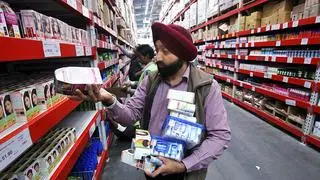India is feeling the heat in the on-going negotiations for the proposed Regional Comprehensive Economic Partnership — one of the largest potential free trade bloc in the world — with most of the 16 members now demanding that commitments be made as early as next month and equal market access be given to all participating countries.
New Delhi has opposed the move at the recent round in New Zealand as offering China duty free access to as many items as the 10-member ASEAN could be disastrous for Indian industry, a government official has said.
“We had initially offered to remove tariffs on 42.5 per cent of items from China, while for the ASEAN, the offer was 80 per cent. If we offer the same to China, the Indian industry will face competition that it may not be able to cope with,” a Commerce Ministry official said.
Ambitious offers A decision is difficult as despite repeated demands made by India that ambitious offers be made in the area of movement of professionals (in the form of facilitation of business visas and more work visas in specified sectors), nothing concrete has happened.
“In the area of services, despite several papers floated by India, the response has been low. We have to decide how to position ourselves in goods, if there is no improvement in services,” he added. Other countries that are part of the RCEP include Japan, South Korea, Australia, and New Zealand. The 16 countries account for about 45 per cent of the world population and over $21 trillion of Gross Domestic Product. The pact would include goods, services and investments as well as some elements of government procurement and intellectual property.
“New Delhi is running out of time in deciding how much market access in goods it could ultimately offer to all members, as countries want final offers in goods to be sealed at the RCEP ministerial in August,” the official said.
It is not just China, but also the ASEAN that is pushing for dismantling of the three-tier system followed in the initial round of offers for goods liberalisation.
Under the three-tier system India offered the highest market access to the ASEAN (removing tariffs on 80 per cent of items). This is followed by its free trade agreement partners South Korea and Japan with proposed tariff elimination at 65 per cent. The lowest offers of dismantling of tariffs are for China, Australia and New Zealand, the three countries with which India does not have free trade pacts, at 42.5 per cent of traded goods.
“The argument forwarded by the ASEAN is that low tariffs for all members would create a regional value chain under which China will not hesitate to buy from it to value add and sell to India as it would have unhindered access in the Indian market as well,” the official said.
This may be good economics for the region, but doesn’t work for India. India has a growing trade deficit with China which touched $52.65 billion in 2015-16, accounting more than a third of the country’s total deficit.






Comments
Comments have to be in English, and in full sentences. They cannot be abusive or personal. Please abide by our community guidelines for posting your comments.
We have migrated to a new commenting platform. If you are already a registered user of TheHindu Businessline and logged in, you may continue to engage with our articles. If you do not have an account please register and login to post comments. Users can access their older comments by logging into their accounts on Vuukle.